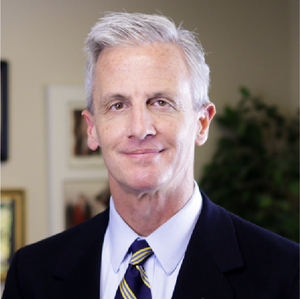Education
Brandon Dutcher | October 7, 2014
School choice ‘will raise teacher salaries’
Brandon Dutcher
In a recent blog post I made mention of the 2014 Education Next survey, overseen by the Harvard Program on Education Policy and Governance, which asked Americans to grade the teachers in their local schools on the quality of their work. The average member of the public says one out of every five teachers is unsatisfactory.
Clearly we need better teachers; the question is how to get them. OCPA has long maintained that across-the-board pay raises are a bad idea. But in a new policy brief published by the Texas Public Policy Foundation (“Teachers Win: A Case for School Choice”), Michael Barba and Vance Ginn argue that, by introducing market forces into the education system, school choice would do more for teacher compensation than any salary-schedule tinkering or increased state spending.
Barba and Ginn explain that “in economics, ‘monopoly’ refers to a market in which there is a single producer; ‘monopsony’ refers to a market in which there is a single consumer.” They say that state education could be either: if we’re referring to K-12 education, then the state is nearly the only producer (monopoly). If we’re referring to teaching services, then the state is nearly the only consumer (monopsony).
Since teaching services are primarily purchased by a single entity, the public school system, this activity likely distorts the labor market of K-12 teachers.
During Texas’ most recent school finance trial, this was the subject of a testimony by Dr. Jacob Vigdor, an expert witness hired by public school districts. Dr. Vigdor holds a Ph.D. in Economics from Harvard University and currently specializes in Labor Economics at Duke University, where he is a professor of Public Policy and Economics. In his expert report, he addressed the labor market situation for K-12 teachers across Texas. His complete statement and associated diagram are worth reproducing here:
“So the competitive labor market is one with many firms trying to hire workers, in this case, imagine many schools or school districts competing with one another for the same pool of teachers. In that sort of situation, the standard predictions of economics imply that wages and the number of teachers hired will be determined by the intersection of supply and demand. In this particular figure, the supply curve is represented by the line marked S-AE. The demand curve is represented by the curve marked MV. The intersection of those two lines is delineated with dash lines and the dash lines tell us what the wage would be or the salary would be for teachers in a perfectly competitive market on the vertical axis. In a market that’s marked by monopsony power, the standard prediction for economics is that fewer teachers will be hired overall and their wages will be lower.”

Simply put, if Texas adopted school choice, and thereby added more competition in the K-12 teacher market, many experts say that more teachers would be employed and they could negotiate a higher salary. Dr. Vigdor stated this explicitly, “introducing greater competition into the market for teachers will raise teacher salaries.” As an expert for Texas public school districts, Dr. Vigdor contended that Texas should not adopt school choice because districts would then have to pay teachers more. But his argument supports exactly what quality teachers and concerned Texans desire: using school choice to improve the quality and salaries of teachers. …
Dr. Vigdor’s conclusions regarding higher pay from school choice were never challenged in trial. In fact, several experts confirm his analysis.
For example, Joseph Bast, president of The Heartland Institute, concluded, “greater parental choice in education increases demand for good teachers, which in turn leads to higher compensation.” When asked about this statement in trial, Bast explained that the key benefit of school choice regarding teacher pay is that pay would increase while overall K-12 education costs would not. He stated, “the cost savings don’t come out of the hides of the teachers, it comes out of waste and inefficiency, underutilization of assets and resources.” In particular, Bast testified based on a study he co-authored that tried to pinpoint the increase in earnings for Texas teachers. The study concluded, “Universal school choice could lead to average pay raises for Houston public school teachers of $12,000 or more.”
Similar to other markets where prices are determined based on supply and demand, school choice would allow there to be multiple purchasers of teacher services — eliminating the current monopsony of public schools. It would also eliminate the current monopoly of K-12 education provided by public schools. Collectively, school choice would provide a schooling market whereby teachers, students, parents, and all Texans benefit through the allocation of resources based on market-driven prices and wages, not state-controlled prices and wages.
The same is true for Oklahoma. Policymakers looking to increase teacher pay should enact school choice.

Brandon Dutcher
Senior Vice President
Brandon Dutcher is OCPA’s senior vice president. Originally an OCPA board member, he joined the staff in 1995. Dutcher received his bachelor’s degree in political science from the University of Oklahoma. He received a master’s degree in journalism and a master’s degree in public policy from Regent University. Dutcher is listed in the Heritage Foundation Guide to Public Policy Experts, and is editor of the book Oklahoma Policy Blueprint, which was praised by Nobel Prize-winning economist Milton Friedman as “thorough, well-informed, and highly sophisticated.” His award-winning articles have appeared in Investor’s Business Daily, WORLD magazine, Forbes.com, Mises.org, The Oklahoman, the Tulsa World, and 200 newspapers throughout Oklahoma and the U.S. He and his wife, Susie, have six children and live in Edmond.